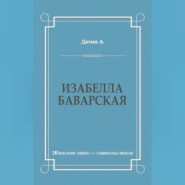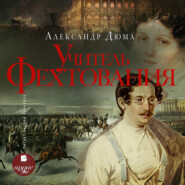По всем вопросам обращайтесь на: info@litportal.ru
(©) 2003-2024.
✖
The Prussian Terror
Настройки чтения
Размер шрифта
Высота строк
Поля
"Not likely! But, even if they did, you alone would be sufficient. And, as they seem anxious to finish the affair one way or another, there will be no difficulties."
Lenhart had already announced the carriage. The colonel explained the way to him. In half-an-hour they arrived at the little glade, with ten minutes to spare.
"A lovely spot," said Benedict. "As the others are not yet here, I will sketch it."
And, producing a sketch-book from his pocket, he dashed off a very accurate view of the place with remarkable rapidity and skill.
Presently a carriage appeared in the distance. As they drew near Benedict rose and took off his hat. The three officers, the editor, and a surgeon they had brought, occupied it. In the officers, Benedict at once recognized his three protectors at Berlin.
His adversaries left their carriage at a little distance and courteously returned his salute. Colonel Anderson went to meet them and explained that his principal, being a stranger, had no second but himself, and asked if one of his opponents would supply the deficiency. They consulted a moment, then one of the officers crossed over and bowed to Benedict.
"I am much obliged by your courtesy, sir," said Benedict.
"We will agree to anything, sir – rather than lose time," replied the officer.
Benedict bit his lip.
"Will you at once select the weapons," he said to Colonel Anderson in English, "we must not keep these gentlemen waiting."
Von Bülow had already divested himself of helmet, coat, waistcoat, and cravat. Benedict studied him carefully as he did so. He appeared to be about thirty-three and to have lived in his uniform until he felt uncomfortable out of it. He was dark, with glossy black hair cut quite short, a straight nose, black moustache and very decided chin. Both courage and loyalty could be read in the frank and open glance of his dark eyes.
Von Bülow, having provided the swords, Benedict was offered his choice of them. He simply took the first that came, and immediately passed his left hand along the edge and felt the point. The edge was keen as a razor. The point sharp as a needle. The major's second observed his action, and, beckoning Colonel Anderson aside.
"Will you," he said, "kindly explain to your principal that in German duels we use only the edge of the sword? To thrust with the point is inadmissible."
"The devil!" said Benedict when this information was repeated to him, "it is well you told me. In France, where duels, especially military ones, are usually serious, we use every stroke we can, and our sword-play is actually called 'counterpoint.'"
"But indeed," exclaimed von Bülow, "I beg, sir, that you will use your sword in whatever way you find best."
Benedict bowed in acknowledgment. Having fought several duels at Heidelberg he was well acquainted with German methods of fencing and placed himself with apparent indifference. As the affronted person has the right of attack, and a challenge may be considered an affront, he waited, standing simply on guard.
CHAPTER IX
THE TWO DUELS
"Engage, gentlemen!" cried the colonel.
Von Bülow's sword swept through the air with a flash like lightning. But, rapid though it was, it descended in empty space. Warned by the instinct of a true fencer, the blades had barely crossed when Benedict sprang swiftly aside and remained standing unguarded, his point lowered, and his mocking smile disclosing a fine set of teeth. His adversary paused, perplexed, then swung round so as to face him, but did not immediately advance. However, feeling that this duel must be no child's play, he stepped forward and instantly the point of Benedict's sword rose menacingly against him. Involuntarily he retreated a step. Benedict now fixed his eyes upon him, circling round him, now bending to the right, now again to the left, but always keeping his weapon low and ready to strike.
The major began to feel a kind of hypnotic influence overpowering him. Determined to fight against it, he boldly stepped forward, holding his sword aloft. Instantly he felt the touch of cold steel. Benedict thrust, his rapier pierced von Bülow's shirt and reappeared on the other side. Had not the major remained standing motionless opposite him, an onlooker would have supposed he had been run through the body.
The seconds hastened up, but:
"It is nothing, I assure you," said the major.
Then, perceiving that Benedict had only intended to pierce his shirt and not himself, he added:
"Come, sir, let us continue this game in earnest."
"Ah!" said Benedict, "but you see, had I played in earnest, you would now be a dead man!"
"On guard, sir," cried von Bülow, furious, "and remember this is a duel to the death."
Benedict stepped back and saluting with his sword:
"Pardon me, gentlemen," he said, "you see how unfortunate I am. Although fully intending not to use my point I have nevertheless made two holes in my opponent's shirt. My hand might again refuse to obey my will, and, as I do not visit a country merely to rebel against its customs – particularly when they happen to be philanthropic – so – "
He went up to a rock which rose out of the little valley and, placing the point of his rapier in a crevice, broke off a good inch of the blade.
His adversary wished to do likewise, but,
"It is quite unnecessary, sir," said Benedict, "you are not likely to use your point."
Being now reduced to ordinary sword-play, Benedict crossed swords with his opponent, which necessitated their keeping close together. But he continually retreated half a pace and advanced again, thanks to which incessant movement the major merely made cuts in the air. Becoming impatient, he endeavoured to reach Benedict, missed again, and involuntarily lowered his weapon. Benedict parried a back stroke and touched von Bülow's breast with the broken point. Said he:
"You see I was right in breaking the point of my sword. Otherwise, this time something besides your shirt would have been pierced."
The major remained silent, but quickly recovering himself again stood on guard. He now saw that his adversary was a most skilful swordsman, who united French celerity with determined coolness and who was fully conscious of his strength.
Benedict, seeing that an end must be made, now stood still, calm but menacing, with frowning brows and eyes fixed on his enemy, not attempting to strike but retaining a posture of defence. It seemed as if he awaited the attack, but suddenly with the unexpected celerity which characterized all his movements, he sprang forward with a bound like that of a jaguar, aimed a blow at his adversary's head, and as the latter raised his arm in defence, drew a line with his blade right across his chest. Then, springing lightly back in the same instant he again lowered his sword as before.
Von Bülow's shirt, slashed as though cut by a razor, was instantly tinged with blood. The seconds moved forward.
"Do not stir, I beg," cried the major, "it is nothing but a scratch. I must confess the gentleman's hand is a light one."
And he again stood on guard.
Courageous though he was, he felt he was losing confidence, and, dumbfounded by his enemy's agility, a sense of great danger oppressed him. Evidently Benedict was keeping just out of reach, and was merely waiting until he should expose himself by an unwary advance. He understood that hitherto his opponent had simply played with him, but that now the duel was approaching an end and that his smallest mistake would be severely punished. His sword, never able to encounter Benedict's, seemed to become lifeless, and ceased to respond to his will.
His previous experience in fencing seemed useless here, and this flashing blade which he could never touch, but which rose constantly before him, alert, intelligent, as if endued with life, confused his senses. He dared not risk a movement before this enemy always just beyond his reach, so imperturbable and yet so alert, and who evidently intended, like the artist he was, either to finish with one brilliant stroke or else – which did not seem likely – to expire in a dignified pose like the "Dying Gladiator."
But, exasperated by his opponent's perfect bodily grace, by his elegant and masterly swordsmanship, and still more by the mocking smile which hovered on his lips, von Bülow felt the blood rise to his temples, and could not resist muttering between his teeth:
"This fellow is the very devil!"
And, springing forward, no longer fearing the broken point, he raised his sword and aimed a blow with all his might at his adversary, a blow which, had it reached its object, would have split his head as though it had been an apple. Again, the stroke only encountered empty air, for once more Benedict had effaced himself by a light, graceful spring, very familiar to Parisian fencing masters.
The major's raised sword had broken his guard. A flash, as of lightning, and his arm, streaming with blood, fell against his side. His sword dropped, but remained upright supported by the sword knot.
The seconds hurried to his side. Very pale, but with smiling lips, von Bülow bowed to Benedict and said:
"I thank you, sir. When you might have run me through the body you only wounded my shirt; when you might have cut me in two you let me off with the sort of cut one gets in shaving, and now, when you might have either cleft my head or maimed my arm, I escape with a ruined sleeve. I now ask you to extend your courtesy even further, and to complete the record like the gentleman you are by explaining why you have spared me thus?"
"Sir," said Benedict with a smile, "in the house of Herr Fellner, the Burgomaster of Frankfort, I was introduced to his god-daughter, a charming lady, who adores her husband. Her name was the Baroness von Bülow. When I saw your card it occurred to me that you might be related, and though, beautiful as she is, mourning could only add to her charm, it would grieve me to have been the cause of compelling her to wear it."
The major looked Benedict in the face and, stern soldier though he might be, there were tears in his eyes.
"Madame von Bülow is my wife," he said. "Believe me, sir, wherever she may meet you she will greet you thus: 'My husband foolishly quarrelled with you, sir; may you ever be blessed because for my sake you spared him!' and she will give you her hand with as much gratitude as I now offer you mine."
Lenhart had already announced the carriage. The colonel explained the way to him. In half-an-hour they arrived at the little glade, with ten minutes to spare.
"A lovely spot," said Benedict. "As the others are not yet here, I will sketch it."
And, producing a sketch-book from his pocket, he dashed off a very accurate view of the place with remarkable rapidity and skill.
Presently a carriage appeared in the distance. As they drew near Benedict rose and took off his hat. The three officers, the editor, and a surgeon they had brought, occupied it. In the officers, Benedict at once recognized his three protectors at Berlin.
His adversaries left their carriage at a little distance and courteously returned his salute. Colonel Anderson went to meet them and explained that his principal, being a stranger, had no second but himself, and asked if one of his opponents would supply the deficiency. They consulted a moment, then one of the officers crossed over and bowed to Benedict.
"I am much obliged by your courtesy, sir," said Benedict.
"We will agree to anything, sir – rather than lose time," replied the officer.
Benedict bit his lip.
"Will you at once select the weapons," he said to Colonel Anderson in English, "we must not keep these gentlemen waiting."
Von Bülow had already divested himself of helmet, coat, waistcoat, and cravat. Benedict studied him carefully as he did so. He appeared to be about thirty-three and to have lived in his uniform until he felt uncomfortable out of it. He was dark, with glossy black hair cut quite short, a straight nose, black moustache and very decided chin. Both courage and loyalty could be read in the frank and open glance of his dark eyes.
Von Bülow, having provided the swords, Benedict was offered his choice of them. He simply took the first that came, and immediately passed his left hand along the edge and felt the point. The edge was keen as a razor. The point sharp as a needle. The major's second observed his action, and, beckoning Colonel Anderson aside.
"Will you," he said, "kindly explain to your principal that in German duels we use only the edge of the sword? To thrust with the point is inadmissible."
"The devil!" said Benedict when this information was repeated to him, "it is well you told me. In France, where duels, especially military ones, are usually serious, we use every stroke we can, and our sword-play is actually called 'counterpoint.'"
"But indeed," exclaimed von Bülow, "I beg, sir, that you will use your sword in whatever way you find best."
Benedict bowed in acknowledgment. Having fought several duels at Heidelberg he was well acquainted with German methods of fencing and placed himself with apparent indifference. As the affronted person has the right of attack, and a challenge may be considered an affront, he waited, standing simply on guard.
CHAPTER IX
THE TWO DUELS
"Engage, gentlemen!" cried the colonel.
Von Bülow's sword swept through the air with a flash like lightning. But, rapid though it was, it descended in empty space. Warned by the instinct of a true fencer, the blades had barely crossed when Benedict sprang swiftly aside and remained standing unguarded, his point lowered, and his mocking smile disclosing a fine set of teeth. His adversary paused, perplexed, then swung round so as to face him, but did not immediately advance. However, feeling that this duel must be no child's play, he stepped forward and instantly the point of Benedict's sword rose menacingly against him. Involuntarily he retreated a step. Benedict now fixed his eyes upon him, circling round him, now bending to the right, now again to the left, but always keeping his weapon low and ready to strike.
The major began to feel a kind of hypnotic influence overpowering him. Determined to fight against it, he boldly stepped forward, holding his sword aloft. Instantly he felt the touch of cold steel. Benedict thrust, his rapier pierced von Bülow's shirt and reappeared on the other side. Had not the major remained standing motionless opposite him, an onlooker would have supposed he had been run through the body.
The seconds hastened up, but:
"It is nothing, I assure you," said the major.
Then, perceiving that Benedict had only intended to pierce his shirt and not himself, he added:
"Come, sir, let us continue this game in earnest."
"Ah!" said Benedict, "but you see, had I played in earnest, you would now be a dead man!"
"On guard, sir," cried von Bülow, furious, "and remember this is a duel to the death."
Benedict stepped back and saluting with his sword:
"Pardon me, gentlemen," he said, "you see how unfortunate I am. Although fully intending not to use my point I have nevertheless made two holes in my opponent's shirt. My hand might again refuse to obey my will, and, as I do not visit a country merely to rebel against its customs – particularly when they happen to be philanthropic – so – "
He went up to a rock which rose out of the little valley and, placing the point of his rapier in a crevice, broke off a good inch of the blade.
His adversary wished to do likewise, but,
"It is quite unnecessary, sir," said Benedict, "you are not likely to use your point."
Being now reduced to ordinary sword-play, Benedict crossed swords with his opponent, which necessitated their keeping close together. But he continually retreated half a pace and advanced again, thanks to which incessant movement the major merely made cuts in the air. Becoming impatient, he endeavoured to reach Benedict, missed again, and involuntarily lowered his weapon. Benedict parried a back stroke and touched von Bülow's breast with the broken point. Said he:
"You see I was right in breaking the point of my sword. Otherwise, this time something besides your shirt would have been pierced."
The major remained silent, but quickly recovering himself again stood on guard. He now saw that his adversary was a most skilful swordsman, who united French celerity with determined coolness and who was fully conscious of his strength.
Benedict, seeing that an end must be made, now stood still, calm but menacing, with frowning brows and eyes fixed on his enemy, not attempting to strike but retaining a posture of defence. It seemed as if he awaited the attack, but suddenly with the unexpected celerity which characterized all his movements, he sprang forward with a bound like that of a jaguar, aimed a blow at his adversary's head, and as the latter raised his arm in defence, drew a line with his blade right across his chest. Then, springing lightly back in the same instant he again lowered his sword as before.
Von Bülow's shirt, slashed as though cut by a razor, was instantly tinged with blood. The seconds moved forward.
"Do not stir, I beg," cried the major, "it is nothing but a scratch. I must confess the gentleman's hand is a light one."
And he again stood on guard.
Courageous though he was, he felt he was losing confidence, and, dumbfounded by his enemy's agility, a sense of great danger oppressed him. Evidently Benedict was keeping just out of reach, and was merely waiting until he should expose himself by an unwary advance. He understood that hitherto his opponent had simply played with him, but that now the duel was approaching an end and that his smallest mistake would be severely punished. His sword, never able to encounter Benedict's, seemed to become lifeless, and ceased to respond to his will.
His previous experience in fencing seemed useless here, and this flashing blade which he could never touch, but which rose constantly before him, alert, intelligent, as if endued with life, confused his senses. He dared not risk a movement before this enemy always just beyond his reach, so imperturbable and yet so alert, and who evidently intended, like the artist he was, either to finish with one brilliant stroke or else – which did not seem likely – to expire in a dignified pose like the "Dying Gladiator."
But, exasperated by his opponent's perfect bodily grace, by his elegant and masterly swordsmanship, and still more by the mocking smile which hovered on his lips, von Bülow felt the blood rise to his temples, and could not resist muttering between his teeth:
"This fellow is the very devil!"
And, springing forward, no longer fearing the broken point, he raised his sword and aimed a blow with all his might at his adversary, a blow which, had it reached its object, would have split his head as though it had been an apple. Again, the stroke only encountered empty air, for once more Benedict had effaced himself by a light, graceful spring, very familiar to Parisian fencing masters.
The major's raised sword had broken his guard. A flash, as of lightning, and his arm, streaming with blood, fell against his side. His sword dropped, but remained upright supported by the sword knot.
The seconds hurried to his side. Very pale, but with smiling lips, von Bülow bowed to Benedict and said:
"I thank you, sir. When you might have run me through the body you only wounded my shirt; when you might have cut me in two you let me off with the sort of cut one gets in shaving, and now, when you might have either cleft my head or maimed my arm, I escape with a ruined sleeve. I now ask you to extend your courtesy even further, and to complete the record like the gentleman you are by explaining why you have spared me thus?"
"Sir," said Benedict with a smile, "in the house of Herr Fellner, the Burgomaster of Frankfort, I was introduced to his god-daughter, a charming lady, who adores her husband. Her name was the Baroness von Bülow. When I saw your card it occurred to me that you might be related, and though, beautiful as she is, mourning could only add to her charm, it would grieve me to have been the cause of compelling her to wear it."
The major looked Benedict in the face and, stern soldier though he might be, there were tears in his eyes.
"Madame von Bülow is my wife," he said. "Believe me, sir, wherever she may meet you she will greet you thus: 'My husband foolishly quarrelled with you, sir; may you ever be blessed because for my sake you spared him!' and she will give you her hand with as much gratitude as I now offer you mine."

















